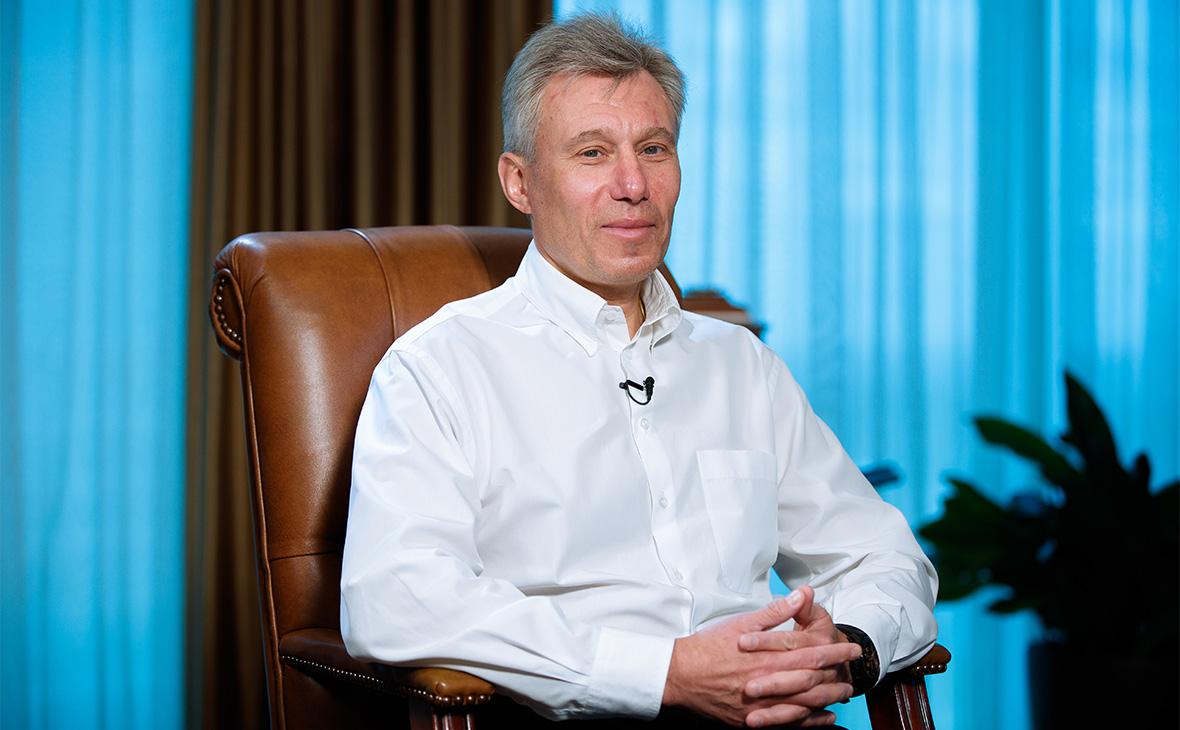
Herman Khan – about investments, billionaires and samurai principles
Advice from an Alfa Group shareholder to young entrepreneurs

Before TNK-BP was taken over by Rosneft, Tyumen was considered the informal capital of the oil company. After selling the oil business, the former owners of TNK are still in the center of their former empire. On March 3, businessman Herman Khan, co-owner of Alfa Group (#10 on Forbes’ 2016 list with a fortune of $8.7 billion) and one of Russia’s most charismatic businessmen of the 1990s gave an open lecture at Tyumen Technopark as part of the “School of Innovative Thinking” project.
Investor as Samurai
Khan began his lecture with advice for aspiring investors to absorb the wisdom of the 17th century Samurai Tsunetomo Yamamoto’s book “Notes about Hidden in the Leaves”.
“In my opinion, an investor is somewhat of a modern-day samurai who has to be ready for various surprises all the time, around the clock. Victory and defeat often depend on fleeting circumstances,” Han quoted Samurai Yamamoto as saying.
In business, Khan believes, one must act as in war – many circumstances a businessman cannot influence, but he must make decisions quickly and respond quickly to changes in the marketplace.
Buffett and Trump
Khan advised to focus on two very different and very rich people – Warren Buffett and Donald Trump.
“The main trigger for Buffett’s success is that he acts as an activist. He invests in small stakes in public companies where management is often not operating in the most efficient way. When there are many investors and not a key one among them, company management relaxes and forgets sometimes in whose interests they are working. They start working not in the company’s interests but in their own. They pay themselves high salaries and unjustified bonuses while the efficiency is low. And Buffet performs the function of an activist – he gets a position on the board of directors, begins to exert influence, creates internal opposition. As a rule, it leads to growth of stock price. That’s where he made his capital,” Khan shared.
As for Trump, Khan simply advises that he should be listened to. Trump was the only businessman in U.S. history to enter the power structure without any political experience and immediately into the highest echelon of power. “One of Trump’s fortunate investments can be seen as the fact that he took part in a low-predictability campaign and became president of the United States,” Khan says.
However, active action is not always the best strategy; sometimes you have to be able to wait for the right moment. In his lecture, the Alfa co-owner saw fit to cite the following statement by the current U.S. president: “Sometimes the best investments are the ones you didn’t make.”
Clash of Cultures
More often than not, the investment cycle consists of three stages – entering the project, improving and benefiting from the project, and exiting the investment project at the right time, Khan said. It’s important for an investor to make the right investment choice, as well as understand which stake to acquire and when to withdraw capital. In this case, it is necessary to correctly prioritize – choose tangible (land, equipment, transport) or intangible (licenses, patents, know-how) assets, and maybe invest in human capital – science, education.
“When there is a takeover or merger, it is always a clash of cultures. At such moments, the right calculation is challenged in a big way. That’s exactly what happened with the TNK and BP asset merger,” he added.
When the merger took place, Khan says, not all employees were comfortable with the changes. Some were used to a great deal of autonomy in decision-making; others, on the contrary, lacked clear tasking. The need to be creative put them off. In such situations, the stamina of the investor and management is tested. If they coped with the stress of the team, defused all the conflicts that arose and kept the team together, then it will be much easier to improve the project, and thus take the company to the next level and eventually make a profit.
Apple and Forest Gump
As a successful example of investment, Hahn cited an episode from the movie “Forrest Gump.” In 1978 Apple raised about $500,000 in investment, the main character in the movie bought about 3% of the stock in “some fruit company” for $10,000. In 1980, Apple initiated an initial public offering, this brought Forrest Gump $4.2 million in just two years. If the movie’s hero had held on to the stock until now, his income could have been more than $26 million, Hahn calculated.
Hahn also cited the actions of Jordan Belfort, whose life story was the basis for the movie “The Wolf of Wall Street,” as an example of a successful high-yield investment. In 1988 he successfully invested in Coca Cola stocks, which brought profit of $500,000 just in five months.
Khan also talked about his experience in the investment process. In 1999, Alfa Group and Renova bought 99.9% of Tyumen Oil Company, which was later merged with BP’s assets in Russia. In March 2013, Alfa Group received $13.86 billion from Rosneft for a 25% stake in TNK-BP. According to Khan, the group’s net profit from this deal was $8.15 billion.
$5 billion into overseas oil and gas
“We acquired some investment capital,” Khan says of the outcome of the deal with Rosneft. According to him, the L1 Energy company headed by him was created with these funds. Now the company is going to invest about $5 billion in the oil and gas sphere. Khan did not name any specific terms of the investment projects.
According to him, the company plans to invest in oil and gas assets on “two platforms”: the first is Europe, North Africa and Latin America, the second is the USA.
The U.S. project involves hard-to-recover reserves, but L1 intends to get synergies from the two platforms. “Why aren’t we doing it from one platform? Because our German counterparts don’t have the technological expertise to produce oil from shale; it’s purely American know-how. We are trying to buy a team there, a company that has this technology, and use it to implement plans to build a platform,” Khan said.
Investments in Russia are understandable, Khan said. It is more difficult to work in Western markets. There is a barrier in communication with the counterparties, and businessmen from different countries have different mentalities.

